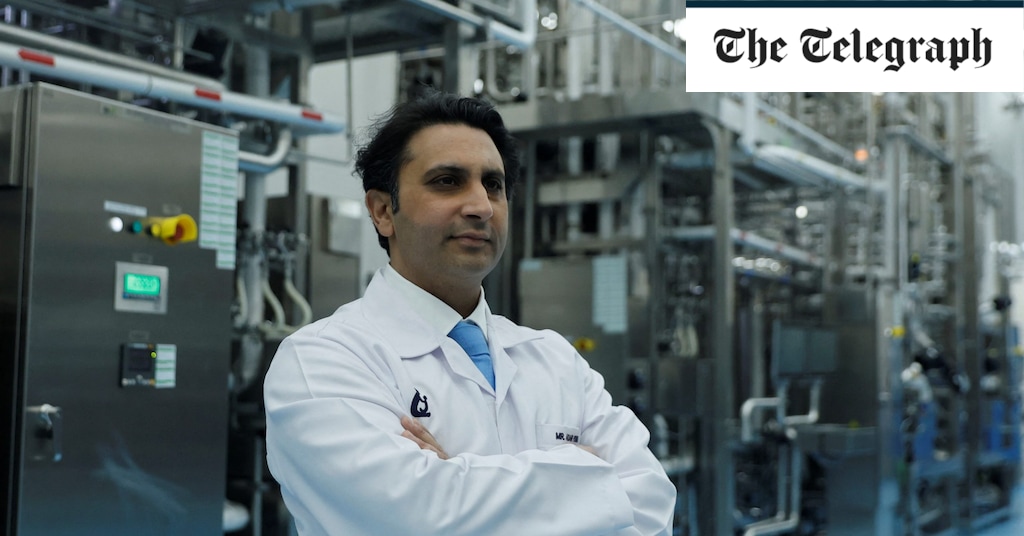But elsewhere, particularly in the UK, efforts to ramp up vaccine manufacturing capacity pale in comparison.
“If you scratch the surface, there's nothing there,” Clive Dix, former head of the coronavirus vaccine task force, told the Telegraph. “In terms of the whole manufacturing environment, the UK is a bit of a hostile place for that to happen. So people have moved away.”
Like Mr Poonawalla, Dr Dix said a lack of political interest was a major barrier to increasing UK manufacturing capacity.
Experts pointed to the Center for Vaccine Manufacturing Innovation to highlight this issue.
The company was founded during the pandemic as a not-for-profit company that brings together research and manufacturing under one roof. But in 2022, the £200m government-funded center was sold to a private pharmaceutical company.
Dr Dix added that further incentives were needed to bring vaccine research and manufacturing to the UK, such as the tax breaks recently introduced in Ireland. Otherwise, the UK would be completely reliant on other countries in the event of a new pandemic.
“We actually lost a lot of manufacturing jobs. [to other countries]It’s also because large companies are looking at the cost base for doing it,” he says. “A lot of stuff went to India and China…We've been missing out on that because of our cost base.”
Across the Channel, Europe, which has been in fierce competition with Britain and the United States for supplies during the coronavirus pandemic, appears to be becoming more aggressive. In June 2023, the European Union signed agreements with four vaccine manufacturers to secure manufacturing capacity for future outbreaks.
At a cost of 160 million euros per year, the deal with US pharmaceutical giant Pfizer, Spanish vaccine makers HIPRA Vaccines and CZ Vaccines, and Dutch company Bilthoven Biologicals will cover enough capacity for 325 million doses per year. be done. This includes different types of vaccines, including mRNA, viral vectors, and protein-based shots.
Dr Dix believes it is not too late to restore ailing political will and replicate Europe's efforts.
“I think with the right leadership it could be easily revived and made a reality,” he says.
“No one should be left behind”
Back in Pune, Poonawalla said that if leaders around the world want to avoid the supply chain issues that plagued the coronavirus outbreak, they can invest in a diverse portfolio of manufacturers in different geographical regions. He emphasized that it is important.
“If you don't have off-the-shelf equipment available, you end up in exactly the same situation you were in when you were relying on four or five manufacturers around the world,” he says.
“Every country is going to be fighting for it. All the bans and restrictions, raw material restrictions and regulatory restrictions that have caused delays and disruption and wreaked havoc during the pandemic will be imposed. Let’s go.”
SII was not spared from the chaos either. The government has banned exports of vaccines as India is infected with the new coronavirus, which has killed at least 770,000 people across its vast territory.
At the time, SII exported just 60 million vaccine doses, mainly to low-income countries that cannot secure vaccines from other countries. AstraZeneca, which SSI has contracted to produce 1 billion doses of the vaccine, has served a legal notice citing delivery delays.
Vaccine supplies have been divided around the world, with rich countries protecting their populations first and poorer countries being left behind.
Poonawalla said that next time, SII will ensure that the same does not happen and will work hard to keep costs low to ensure that the most vulnerable people are vaccinated.
“At SII, we strongly believe that no one should be left behind in the fight against global health emergencies,” he said.
“Our commitment to equity, combined with our continued commitment to strengthening manufacturing capabilities, building strategic partnerships, and aligning with international initiatives, will help us meet the needs of both India and its surrounding regions. “The world will be better positioned to ensure timely and equitable distribution of lifesaving vaccines to people in need during the next pandemic.”
SII also faces opposition from the U.S. drug lobby, which calls for reform of intellectual property protections, while regulations make it difficult for the company to penetrate the wealthy market.
More broadly, India's pharmaceutical industry faces significant scrutiny. The company has been plagued by scandals, including a deadly cough syrup that killed hundreds of children, but SII has insisted it was not involved.

